A Quick Guide to Understanding Protein Powder

#1 WHEY
One of the widely used protein powders is whey. Whey is not only highly absorbable, but it also contains all nine essential amino acids: these are the building blocks of protein that must be consumed through diet. While all whey is a milk bi-product of the cheese-making process, not all whey protein powders on the market are exactly equal. The three main types of whey protein powders are: isolates, hydrolysates, and concentrates.
Whey Isolates
Compared to the three different types of whey protein, whey isolates will contain the most amount of protein. This is because it has undergone a more thorough filtration process. Because of its higher protein content, whey isolate is a great option for individuals focusing on achieving specific macronutrients or adhering to a low carbohydrate/high protein diet. The process also filters out more fat and carbohydrates, making it a more expensive option, but also a great option for those who experience issues digesting lactose, the main carbohydrate or sugar found in milk. Whey isolate is also a highly absorbable form of protein and has been studied frequently for its ability to support weight loss and strength building.
Whey Concentrate
Unlike whey isolate, whey concentrate is actually the cheapest form of whey. Since they have undergone less filtration, whey concentrate usually contains greater levels of fat and carbohydrates, making this type of whey hit or miss with athletes that have lactose intolerance. In some cases, individuals may react to whey concentrates. But in individuals who don’t have a reaction, whey concentrate is an affordable yet effective choice. It maintains high absorbability and nutrient profile, making it a great pre- or post-workout meal for those on a budget wanting to increase muscle mass.
Whey Hydrolysate Protein
Hydrolyzed whey protein powder is the most absorbable form of whey protein powder. Not only does this type of whey absorb faster, but athletes using this type of whey protein powder can benefit from faster recovery, too. This fast-acting absorption triggers a spike in blood amino acid levels after consumption, which increases muscle protein synthesis. Ultimately this will trigger a greater spike in insulin, though, so be sure you are pairing this protein with an active weight-training workout regime. While hydrolyzed whey protein is more expensive than whey concentrate, it will help body builders, and those interested in gaining muscle mass reach their goals faster.
Hydrolyzed Beef Protein
Hydrolyzed beef protein powder has recently become a popular protein powder option, especially for those who find it challenging to digest whey or pea. Hydrolyzed beef protein powder is a highly absorbable and digestible type of protein powder that also contains a diverse amino acid profile and, like whey isolate, has high concentrations of protein and low concentrations of carbohydrates and fat. This type of protein powder is a bone broth protein, making it a low-allergen option and a great addition to an autoimmune or basic paleo-type diet. However, not all hydrolyzed beef protein powders on the market are created equal: in many cases, the bone broth will contain collagen and an insufficient amino acid profile, making it a far inferior option for muscle and strength building. Be sure to look for hydrolyzed beef protein powders that contain collagen-specific amino acids with a complete protein profile, which will support connective-tissue while helping you reach your fitness goals.
#2 PLANT-BASED
Whether you are transitioning to a more plant-based diet, or you experience digestive distress from milk-containing protein powders, or simply want to cycle your protein powder and try something new, plant-based protein powders provide an alternative option to animal-based protein powders that can be just as effective at helping you reach your health and fitness goals.
Soy Protein
Soy protein is one of the few sources of plant-based protein that contains a complete protein profile. It’s thus is a great alterative to animal-based protein powders that are effective at supporting weight-loss regiments or building of lean muscle mass. In addition to its impressive nutrient profile, soy contains isoflavones, which support healthy cholesterol levels and boost the thyroid gland to increase metabolism and fat loss. Be sure to purchase only organic types of soy protein powder, since soy is largely a genetically modified food (GMO) and long-term effects of GMO products are harmful to human health.
Other
It’s common to see “plant-based protein” being labeled without specifying the main plant source included in the powder. That’s simply because many plants do not contain essential amino acids. But, when different types of plants are combined, each plant’s unique amino acid profile comes together to eventually make up protein powders that achieve a robust amino acid profile. Plant-based protein powders are often derived from peas, hemp seeds, pumpkin seeds, cranberry, brown rice, chia, and so much more depending on the product type. Some things to consider when choosing a plant-based protein powder are: if there are any plant sources that are known allergens to you, the taste, and the texture. Lastly, plant-based protein powders typically contain more carbohydrates than animal-based protein powders, like whey for example, but as an added bonus, may contain some fibre.
Did this blog help provide some clarity about the different types of protein powders on the market? If so, we’d love for you to let us know! Tag us on Instagram or Facebook with the hashtag #ReflexNation. Share with us your experience using protein powders and some of your favourites on the market. We’d love to know!




